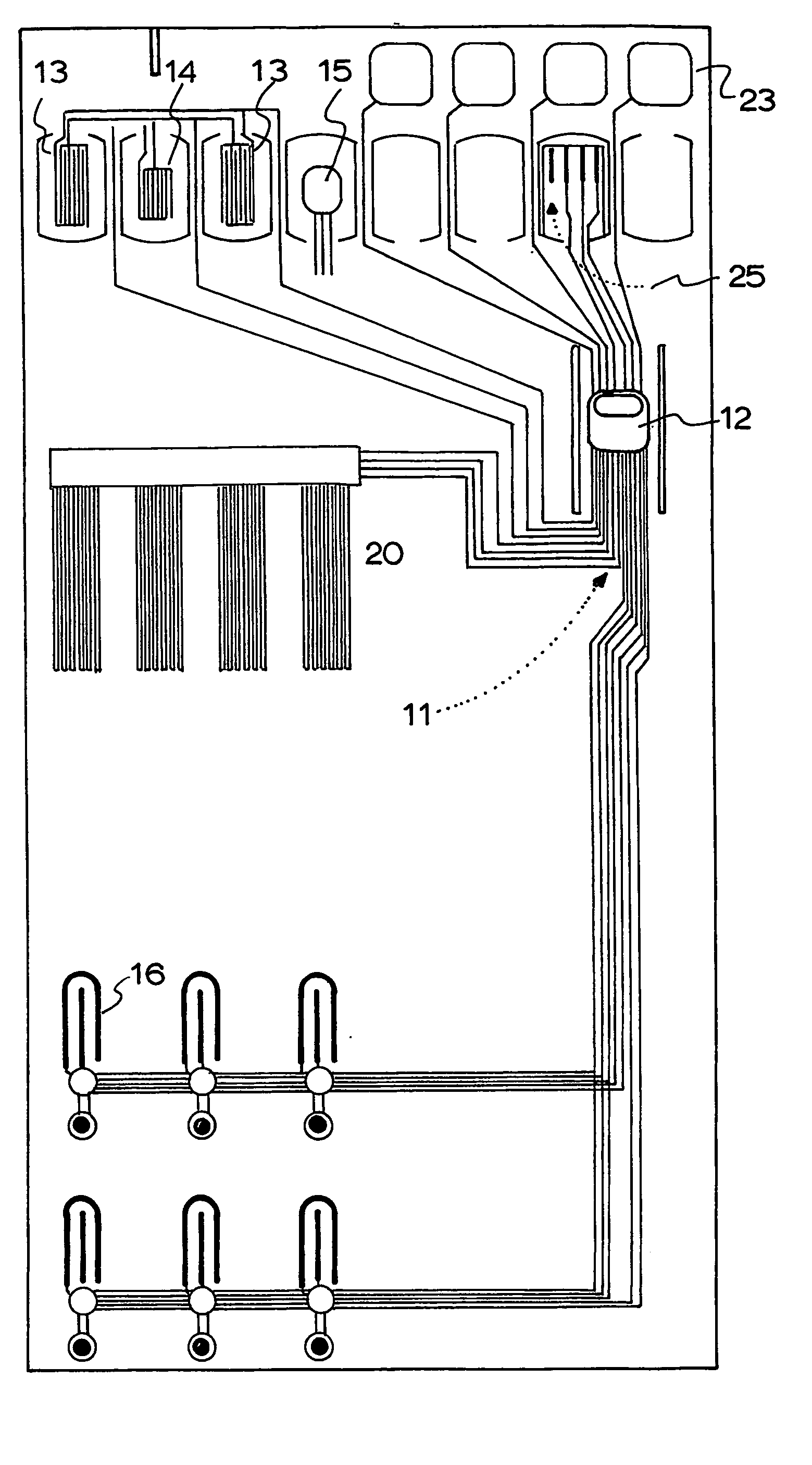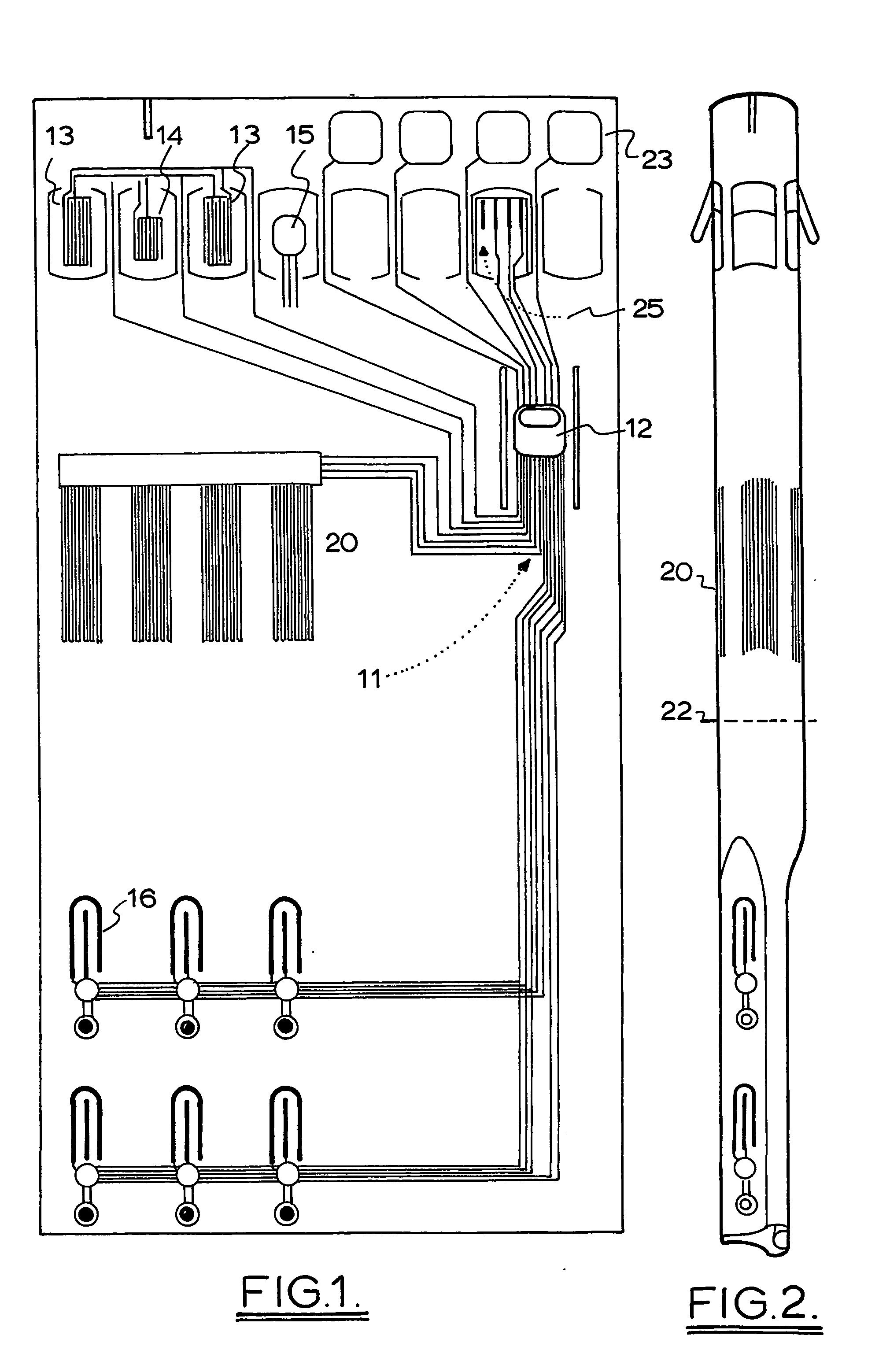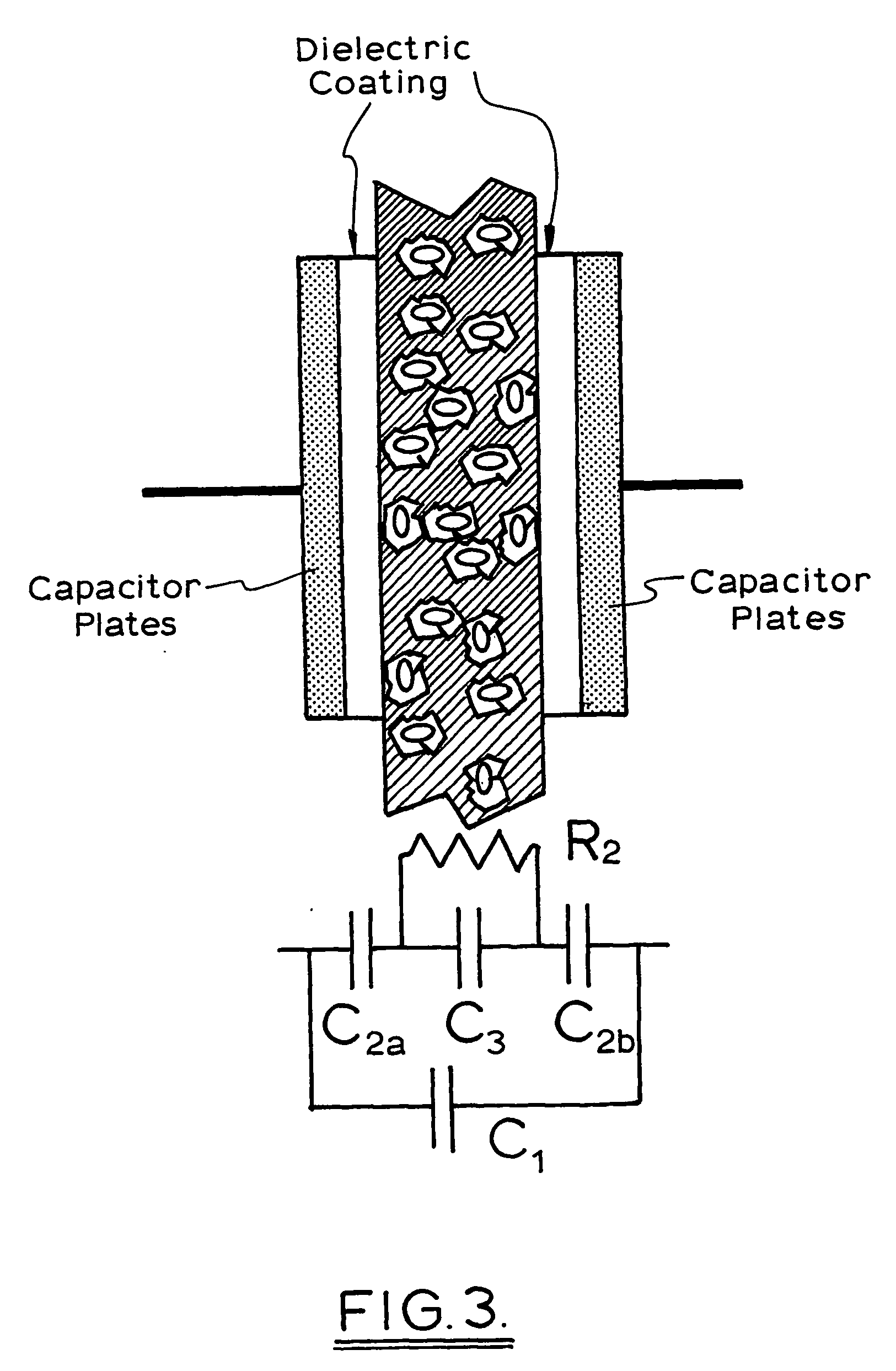Environmental sensor
a sensor and environment technology, applied in the direction of liquid/fluent solid measurement, fluid speed measurement using thermal variables, indication/recording movement, etc., can solve the problems of inconvenient deployment and maintenance of sensors, inability to meet the needs of such applications, and inability to calibrate sensors discussed above. , to achieve the effect of being easy to deploy and maintain
- Summary
- Abstract
- Description
- Claims
- Application Information
AI Technical Summary
Benefits of technology
Problems solved by technology
Method used
Image
Examples
Embodiment Construction
[0045] Some preferred embodiments of the invention will now be described with reference to the drawings in which:
[0046]FIG. 1 is a schematic outline of a multi sensor layout on a flexible substrate;
[0047]FIG. 2 illustrates the multi sensor of figure in rolled into the form of a stake;
[0048]FIG. 3 illustrates the operation of the capacitive moisture sensor used in the multi sensor of FIG. 1;
[0049]FIG. 4 illustrates the layers forming a printed soil sensor;
[0050]FIG. 5 illustrates a plant management system utilizing the sensor array of FIGS. 1 and 2;
[0051]FIG. 6 is a schematic view of a combined silicon based temperature wind and humidity sensor;
[0052]FIG. 7 is a side view of FIG. 5;
[0053]FIG. 8A is a schematic circuit diagram of the sensor of FIG. 5;
[0054]FIG. 8B is a schematic layout of alternative electrical circuits for the wind speed / direction and temperature sensor of FIG. 5;
[0055] FIGS. 9 to 15 illustrate the masks used to fabricate the sensor illustrated in FIG. 6.
[00...
PUM
| Property | Measurement | Unit |
|---|---|---|
| thickness | aaaaa | aaaaa |
| temperature | aaaaa | aaaaa |
| temperatures | aaaaa | aaaaa |
Abstract
Description
Claims
Application Information
 Login to View More
Login to View More - R&D
- Intellectual Property
- Life Sciences
- Materials
- Tech Scout
- Unparalleled Data Quality
- Higher Quality Content
- 60% Fewer Hallucinations
Browse by: Latest US Patents, China's latest patents, Technical Efficacy Thesaurus, Application Domain, Technology Topic, Popular Technical Reports.
© 2025 PatSnap. All rights reserved.Legal|Privacy policy|Modern Slavery Act Transparency Statement|Sitemap|About US| Contact US: help@patsnap.com



